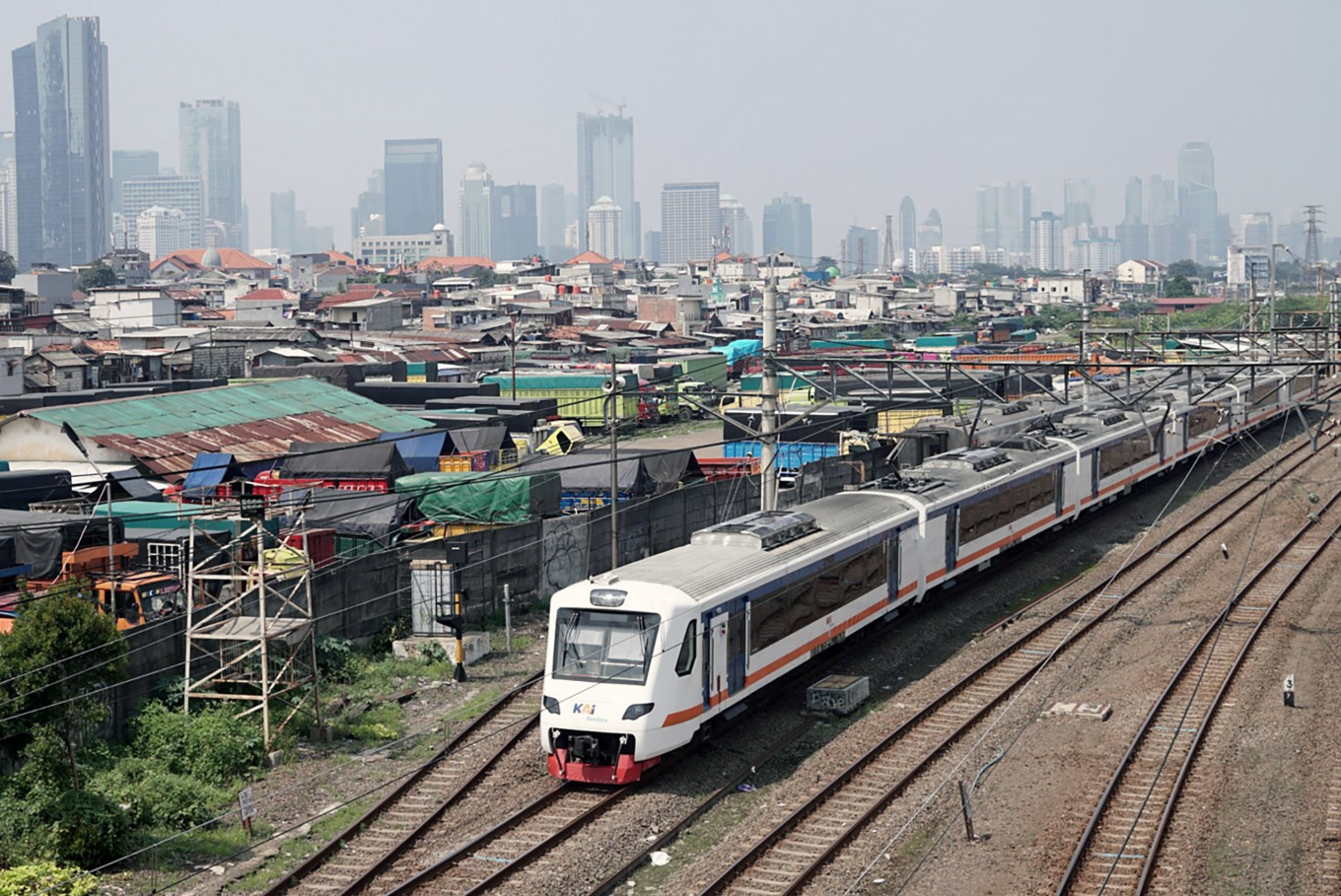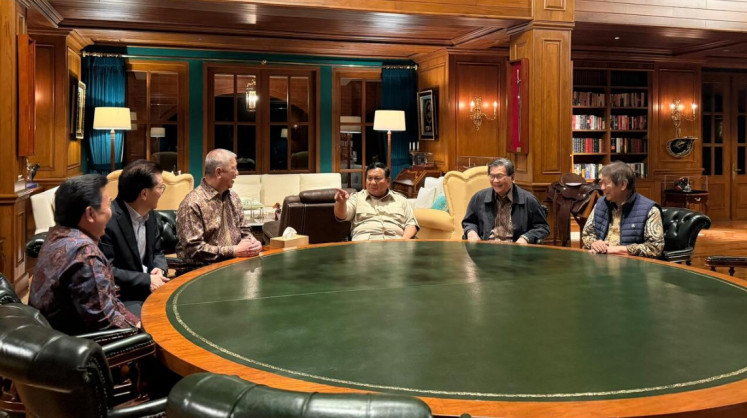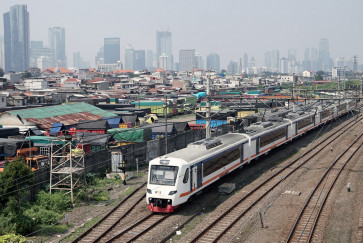Popular Reads
Top Results
Can't find what you're looking for?
View all search resultsPopular Reads
Top Results
Can't find what you're looking for?
View all search resultsAnalysis: RI-China reach agreement on Jakarta-Bandung HSR cost-overrun
Change text size
Gift Premium Articles
to Anyone
 The Electric Rail Train crosses the backdrop of skyscrapers in Jakarta, Wednesday (21/4/2021). Bank Indonesia (BI) has revised the projection of national economic growth throughout 2021, to a range of 4.1 to 5.1 percent which was previously estimated to grow. in the range of 4.3 percent-5.3 percent. (JP/Yulianto Catur Nugroho)
The Electric Rail Train crosses the backdrop of skyscrapers in Jakarta, Wednesday (21/4/2021). Bank Indonesia (BI) has revised the projection of national economic growth throughout 2021, to a range of 4.1 to 5.1 percent which was previously estimated to grow. in the range of 4.3 percent-5.3 percent. (JP/Yulianto Catur Nugroho)
D
eputy State-Owned Enterprises (SOEs) Minister Kartika Wirjoatmodjo announced an agreement had been reached between Indonesia and China regarding the amount of Jakarta-Bandung High Spseed Rail (HSR) project cost overrun, but the figure seems to be classified. The agreement resolved the dispute between both countries about the HSR project’s cost overrun, which had hampered its development progress.
Previously, China assumed that the Global System Mobile - Railways (GSM-R) frequencies used for signaling trains were free, like in its country. That led to China estimating the HSR project’s cost overrun at US$982 million (Rp15.2 trillion). However, GSM-R in Indonesia is provided through a frequency-sharing program with Telkomsel, which has an investment cost. Therefore, Indonesia’s Development Finance Comptroller (BPKP) included it in the project’s cost overrun, leading it to $1.49 billion.
The agreement between the two countries regarding the cost-overrun figure was important to allow the Indonesian government to proceed with disbursing another Rp 3.2 trillion of state-capital injection to Kereta Cepat Indonesia China (KCIC) through the Indonesian rail SOE PT Kereta Api Indonesia (PT KAI).
The previous agreement regarding the cost overrun was for a capital injection to finance 25 percent of the funding gap with 60 percent, or Rp 3.2 trillion according to Indonesia’s estimate, to be paid by the Indonesian consortium, while the remaining 40 percent, or Rp 2.14 trillion, would be paid by the Chinese consortium. The remaining 75 percent of the cost overrun, or Rp 16 trillion, would be funded by new loans from the China Development Bank (CDB).
The high proportion of the loan from CDB in the funding for the HSR project’s cost overrun risks Indonesia’s ownership over KCIC, since the country may opt to reduce its stake in the HSR project to pay off the loan. If that happens, Indonesia would be handing control of a critical infrastructure to a foreign party, raising questions over its infrastructure-development goals.
In the meantime, KCIC is rushing to meet the target set by President Joko “Jokowi” Widodo to complete the project by July this year. However, after the project construction was halted due to the COVID-19 pandemic mobility restrictions, the project met with various accidents, adding delays and likely contributing to the cost overrun. To top it all off, the profitability of the project after operating is in question since the market sees falling demand for its transportation service caused by moderate post-pandemic economic growth.
What’s more


















